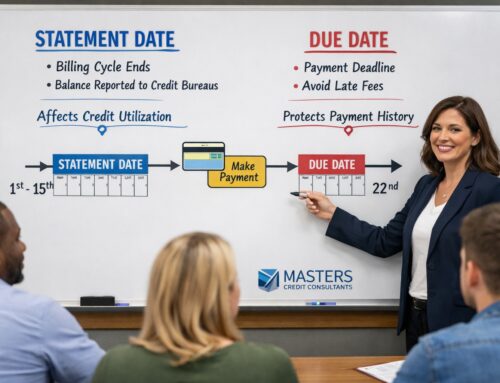
Introduction: The Growing Concern of Rising Credit Card Interest Rates
In recent years, credit card interest rates have been on the rise. This increase has sparked concerns among consumers who rely on credit cards for daily purchases or as an emergency financial tool. Whether you’re carrying a balance or simply trying to understand the economics behind this change, it’s important to know why credit card interest rates are climbing and how you can manage them. In this article, we will break down the key reasons behind the increase in credit card interest rates and offer practical tips for navigating these higher rates.
Why Are Credit Card Interest Rates Rising?
Before we dive deeper into the factors influencing rising credit card rates, let’s first examine the impact this increase has on individuals and businesses.
What Are Credit Card Interest Rates?
Credit card interest rates are the fees charged by credit card companies for borrowing money through credit cards. Typically expressed as an Annual Percentage Rate (APR), these rates can vary greatly based on your credit score, payment history, and the type of card you have. APR represents the yearly cost of borrowing and can significantly affect your monthly payments if you carry a balance.
To better understand the rising rates, it’s essential to know how they are calculated and the factors influencing these calculations.
Key Factors Driving the Increase in Credit Card Interest Rates
As you’ve probably noticed, credit card interest rates have been climbing in recent months. But what exactly is causing this? Below, we explore some of the key factors that contribute to the rising interest rates.
Inflation and Economic Conditions
One of the biggest drivers of rising credit card interest rates is the current economic environment, particularly inflation. Inflation refers to the rise in prices of goods and services over time. When inflation is high, the Federal Reserve may raise interest rates to slow down spending and keep the economy stable. This, in turn, affects the cost of borrowing, leading credit card companies to increase their interest rates to maintain profitability.
Inflation and Credit Card Rates: The Connection
Inflation directly impacts the cost of borrowing for credit card companies. As interest rates increase in response to inflation, consumers are forced to deal with higher interest charges on any outstanding balances. The higher the inflation rate, the higher your credit card APR is likely to be.
Federal Reserve Rate Hikes
The Federal Reserve plays a central role in controlling the interest rates that affect everything from mortgages to credit cards. When the Federal Reserve raises its key interest rates, banks and credit card companies typically follow suit by raising their rates. This ensures that credit card companies can still make a profit while covering their borrowing costs.
As the Fed has increased interest rates to combat inflation, credit card APRs have climbed as well. This trickle-down effect impacts consumers who are carrying balances on their credit cards, making it harder to pay off debt in the long run.
Credit Card Issuer Policies
Credit card companies themselves also influence interest rates. While the broader economic landscape plays a significant role, each issuer has its own policies when it comes to determining APRs. For example, card issuers may increase rates for higher-risk borrowers, such as those with lower credit scores or higher existing debt loads. Issuers may also raise rates as a tactic to offset risks associated with economic uncertainty.
It’s worth noting that the credit card market is competitive, and card issuers are constantly adjusting their rates to attract and retain customers. If an issuer believes that raising rates will protect their bottom line, they may implement such increases even if broader economic conditions don’t dictate it.
The Impact of Rising Credit Card Interest Rates
Rising credit card interest rates can have a significant impact on consumers. If you’re carrying a balance on your credit card, higher interest rates mean that it will take longer and cost more to pay off your debt. This can lead to financial stress for individuals already struggling with existing balances.
For example, a $5,000 balance with a 15% APR could increase your monthly payments significantly as the rate climbs. A higher rate means that more of your payment goes toward the interest, leaving less for the principal balance. Over time, this results in higher overall debt and longer repayment periods.
How to Manage Credit Card Debt Amid Rising Interest Rates
While higher interest rates are not something you can control, there are strategies you can implement to minimize their impact on your finances.
Pay Off Debt Sooner
One of the best ways to avoid paying exorbitant amounts of interest is by paying off your credit card balance as quickly as possible. The sooner you pay off the principal, the less interest you’ll accumulate. If you’re struggling to make more than the minimum payment, consider cutting non-essential expenses or finding ways to increase your income.
Consider Balance Transfers
Balance transfer offers can be a great way to reduce the amount of interest you’re paying on your credit cards. By transferring high-interest debt to a credit card with a lower interest rate (sometimes 0% for an introductory period), you can save money on interest and pay off your debt faster. However, be mindful of the transfer fees and ensure that the new card’s interest rate will be lower in the long run.
Consult a Credit Repair Service
If rising interest rates are making it harder to pay down your credit card debt, it may be time to consult a professional credit repair service. Masters Credit Consultants, one of the top credit repair companies, can help you manage and repair your credit score, potentially lowering your interest rates over time.
By working with Masters Credit Consultants, you can gain insight into strategies for improving your credit score, which can ultimately lead to lower interest rates on future loans or credit cards. Masters Credit Consultants specializes in helping individuals repair their credit and navigate financial challenges like rising interest rates.
How Masters Credit Consultants Can Help You Overcome Rising Interest Rates
At Masters Credit Consultants, we understand the financial strain that rising credit card interest rates can place on your shoulders. Our credit repair experts specialize in identifying issues with your credit report and developing strategies to improve your creditworthiness. By working with us, you can:
Lower your credit card interest rates by improving your credit score.
Receive tailored advice on managing your debt and improving your financial situation.
Access tools and resources for long-term credit health.
If rising interest rates have made it harder for you to manage your finances, don’t hesitate to reach out to Masters Credit Consultants. We’re here to help you get back on track and take control of your financial future.
Schedule Your Free Credit Consultation with Masters Credit Consultants
Don’t let rising credit card interest rates hold you back. Masters Credit Consultants offers a free consultation to discuss your credit situation and provide actionable solutions. Whether you need help repairing your credit or finding strategies to manage your debt, our team is ready to assist.
📞 Phone: 864-249-9466
🌐 Website: www.masterscredit.com
Ready to take control of your credit? Schedule your free consultation with Masters Credit Consultants today!
Conclusion
Credit card interest rates are on the rise, and understanding the factors behind these increases is crucial for managing your finances. With inflation, Federal Reserve rate hikes, and issuer policies driving up APRs, it’s more important than ever to stay informed and take steps to reduce your debt. If you’re struggling with high interest rates, Masters Credit Consultants can help you repair your credit and put you on a path to financial freedom.








Leave A Comment